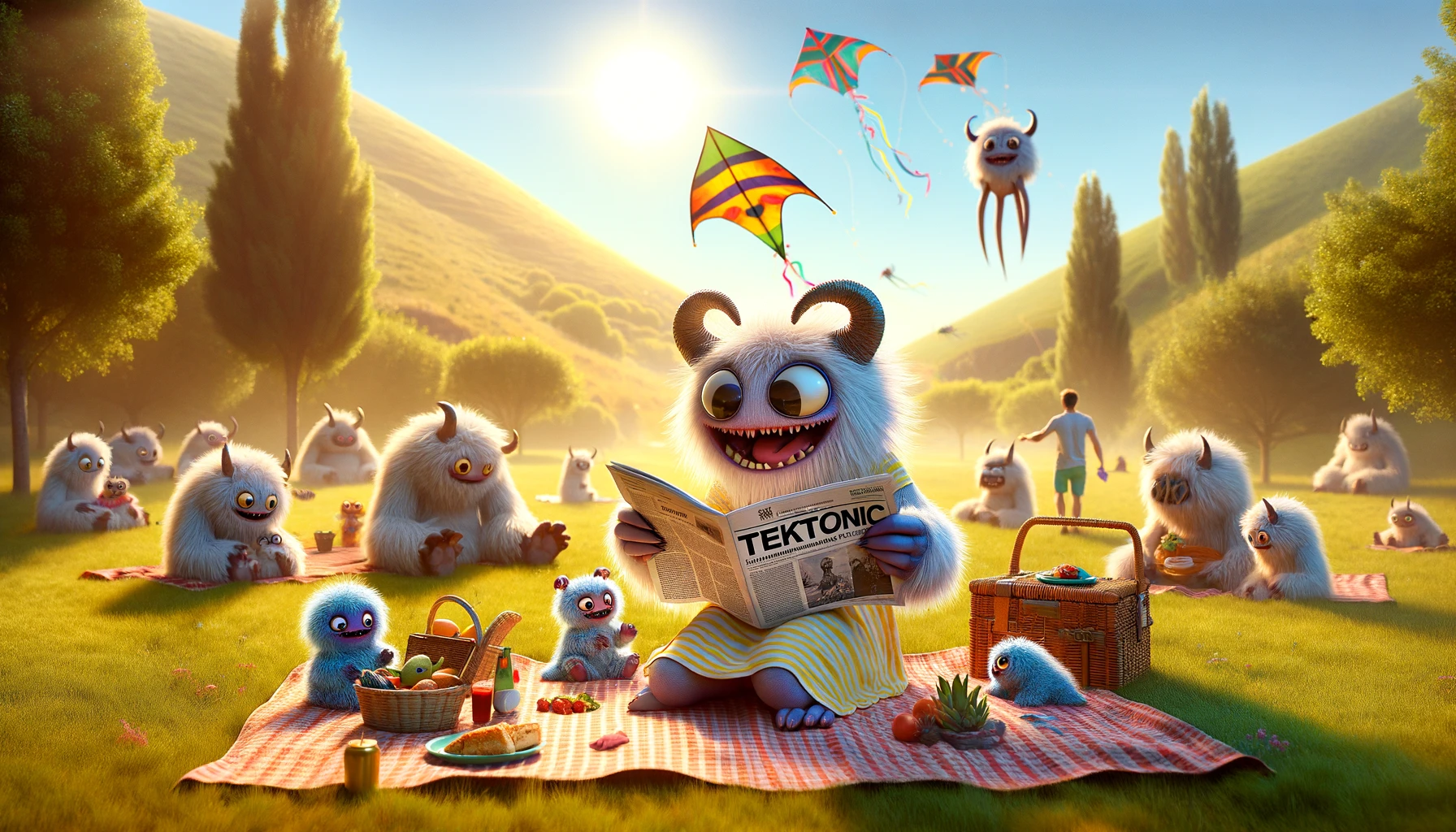This week in tech, we’ve seen a dizzying array of innovations that expand our understanding of what’s possible with artificial intelligence. From Microsoft’s moves to integrate AI more deeply into personal computing to AI applications in education and public safety, it feels like we are moving up the steep innovation curve. There’s a sense of excitement about AI’s profound impacts on how we learn, protect, and even govern ourselves.
My top stories of the week came from Microsoft announcing their collaboration with Qualcomm to deliver AI-powered Windows PCs on ARM. Microsoft is going all in on AI, and now MS Teams is the central place where agents (CoPilots) will be deployed and utilized. Soon, you can spawn your team of synthetic workers right inside the collaboration software. They also hinted that GPT-5 will be significantly more capable (and intelligent?) than GPT-4, quelling speculation that we’ve hit a limit on LLM technologies (see picture)

This image was repeated in a slide presented by OpenAI at a presentation in Paris, too.

Before moving on to the news, I must mention Thomas Dohmke’s (CEO of GitHub) Ted Talk, released this week. In it, he reveals that human language is the only language we need to write software. This verbal validation of my book, Generative Software Engineering, demonstrates further evidence that while coding may be on its way out, using our minds to design, build, test, distribute, and evaluate software will never become obsolete.
This week’s roundup will start with the controversy surrounding Google’s new AI search and its unusual suggestions to add glue to pizza, highlighting a glitch that could lead to misinformation and hazardous advice. Meanwhile, Microsoft is pushing the boundaries of AI integration with its new AI assistant, Copilot Plus, which aims to gain user trust by managing computer tasks by taking periodic screenshots of your PC’s desktop. The company’s ambition raises questions about privacy and the extent of trust users should place in AI technologies, for which Elon Musk openly criticized Microsoft’s Recall feature, likening it to a ‘Black Mirror’ episode.
In a move that could redefine emotional support, the concept of Emotional Support AI (ESAI) is emerging as a potential successor to Emotional Support Animals (ESA), signaling a shift in how we perceive companionship and mental health support through technology.
On the legal and ethical front, Mark Zuckerberg faces criticism for not banning beauty filters on Facebook and Instagram, which allegedly harm teens’ mental health. The conversation around AI’s role in society is further amplified by OpenAI CEO Sam Altman’s remarks on GPT-5, suggesting it could function as a ‘virtual brain,’ offering deeper thinking capabilities as he attempts to shake off the ongoing Scarlett Johansson drama and employee mismanagement fiasco.
In cybersecurity, the rise of AI deepfakes is causing alarm across the financial sector, with a significant percentage of consumers expressing daily concerns over being deceived by such technologies.
In hardware news, Nvidia hinted at launching AI PC chips next year, presenting promising developments in competition in the consumer PC market. This move could bring further innovations and solidify AI’s integration in personal AI technology.
In AI and education news. Microsoft’s decision to make Khan Academy’s Khanmigo AI tool-free to US teachers marked a significant shift in educational resources and highlighted AI’s growing role in personalizing education. This move aligns with broader trends in US schools testing AI-powered camera technology to enhance campus security.
AI’s influence on political stability has become a topic of considerable debate in AI and politics. Political scientist Ian Brewell has suggested that closed political systems might benefit disproportionately from AI, potentially challenging the stability of democratic frameworks. This perspective gains further complexity, with Colorado leading the way in the US with new AI discrimination laws aimed at regulating the use of AI to prevent algorithmic biases, reflecting a proactive approach to AI governance.
In business, Nvidia’s recent earnings report smashed expectations with a 262% increase in sales, primarily driven by its AI and gaming hardware sectors motivating a 10 to 1 stock split. This financial success story is accompanied by cautionary tales from the workforce, where unions are calling for regulations to manage AI’s role in hiring and firing—highlighting the dual-edged nature of AI in business: a potent tool for growth but also a potential for disruption as business may only have two more years to integrate AI otherwise risk extinction.
Looking at healthcare news, AI’s capabilities are being leveraged to predict ER admissions with minimal training, as demonstrated by researchers at Mount Sinai. Applying generative AI in healthcare could significantly improve patient outcomes and optimize hospital resource management. Meanwhile, AI’s safety implications are scrutinized as Elon Musk’s Neuralink moves forward with FDA clearance for a second brain chip implant just as the government decides to intervene in the cybersecurity affairs of healthcare organizations due to their recent high-profile failures.
In media and entertainment the media and entertainment industries are not untouched by advances in AI. Meta’s new initiative to use AI for news summaries and the release of the first major AI music video by the artist Take the W exemplify how AI is reshaping content creation. However, these innovations come with concerns about the erosion of trust in media, highlighted by the use of AI-generated content and fake bylines in local news, which could undermine public trust and the authenticity of information.
That is it. Stay tuned for more news next week. I APPRECIATE ALL THE READERS. Help spread the word. I put these newsletters together so productive humans like you can stay on top of the latest AI stories shaping our world.
If you like these weekly tech news reports, subscribe to get notified of new editions and updates. For daily updates, you can check out our news page. Or, for a more in-depth analysis of the week’s news, sign up to receive our free weekly newsletter located to the right of the daily news.



